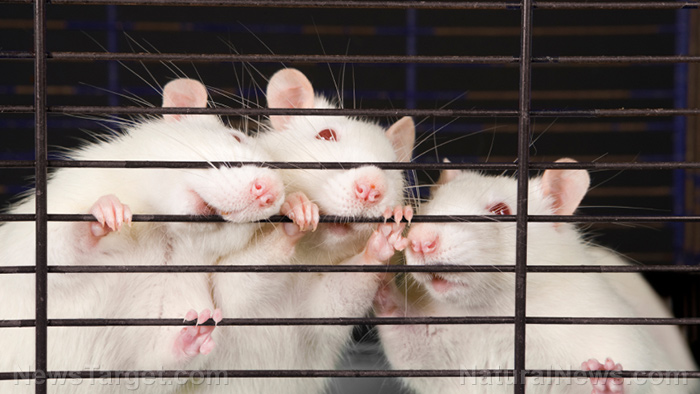
The study is the first of its kind, and research results revealed that the mammalian brain is capable of forming a map of its surroundings using only smells.
The researchers said that with the help of an olfactory-based virtual reality system, further studies could pave the way to a closer understanding of odor-guided navigation and explain why mammals dislike unpleasant odors, a preference for pheromones, and an innate predilection for one scent over another.
The virtual reality system could also help tech developers integrate smell into current virtual reality systems to provide users with a more multi-sensory experience. (Related: Do you have a discerning nose? A new study shows that exposure to a variety of smells early in life enhances the development of the sense of smell.)
Daniel Dombeck, an associate professor of neurobiology in Northwestern’s Weinberg College of Arts and Sciences, shared that they jokingly call the system "smellovision." Dombeck, who also led the study, added that the olfactory-based virtual reality system is "the world’s first method to control odorant concentrations" promptly in space for mammals as they navigated the virtual environment.
While scientists have already determined that animal behavior can be influenced by odors, studying this phenomenon has been challenging since scents are almost impossible to manipulate because they travel and diffuse in the air. However, with the virtual reality system based on odors instead of audio and visuals, Dombeck and Brad Radvansky, a graduate student, were able to design a landscape that allowed them to control and maintain several odors.
Radvansky said, "Imagine a room in which each position is defined by a unique smell profile." He continued, "And imagine that this profile is maintained no matter how much time elapses or how fast you move through the room."
Dombeck’s team used this method to observe the mice for the study. The research team used a predictive algorithm that figured out the exact timing and distributions of the odors while the airflow system pumped scents, like bubblegum, pine, and sour smell, by the mouse’s nose to create a virtual room.
The mice first explored the virtual environment via both visual and olfactory cues. The researchers then turned off the visual virtual reality system, which left the mice to navigate the room in total darkness using only olfactory cues. While the mice did not show a decrease in performance, the results of the study showed that navigating a smell landscape employs the brain’s spatial mapping mechanisms.
The researchers posited that aside from helping researchers study how the brain processes and uses smells, the platform could also be used in human applications.
Dombeck shared that the development of virtual reality technology is usually concentrated on both vision and sound. He stated that its possible that this technology can soon be applied to commercial virtual reality systems to develop more immersive multi-sensory experience for humans.
Tips for improving your sense of smell
As we age, our sense of smell naturally declines. Try the tips below to improve your sense of smell:
- Blow your nose then use some saline spray - Simply blowing out your nose and using a saline spray can help clear a blocked nose and blocked nerve receptors.
- Go running or brisk walking for 10 minutes - Our sense of smell is higher post-exercise. Researchers believe that this is due to additional moisture in the nose.
- Humidify the air in the winter - It's possible that our sense of smell is strongest in the summer and spring because of the higher moisture content in the air.
- Limit your alcohol consumption - Research has proven that your sense of smell declines as blood alcohol levels rise so try to limit the alcoholic drinks that you consume.
- Prolonged exposure to unpleasant smells may affect your sense of smell - If your work exposes you to noxious odors on a daily basis, wear a face-mask that covers your nose and mouth to help filter out some of the bad smells.
You can learn more about other findings on environmental concerns and other topics at RealScienceNews.com.
Sources include:
Please contact us for more information.























